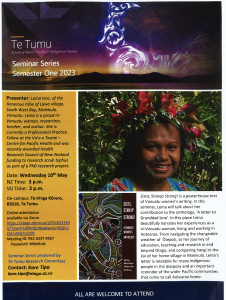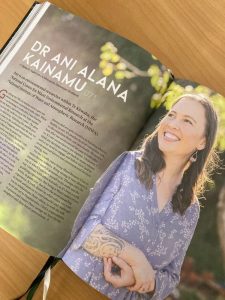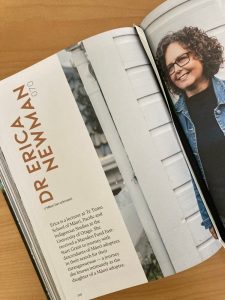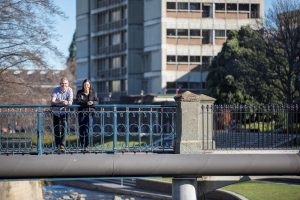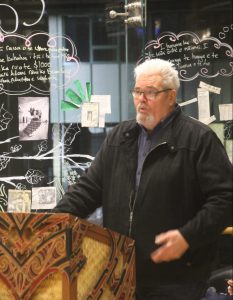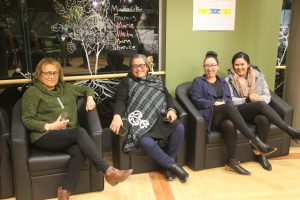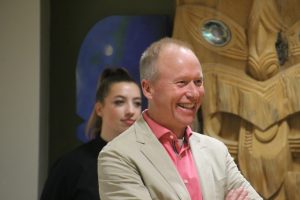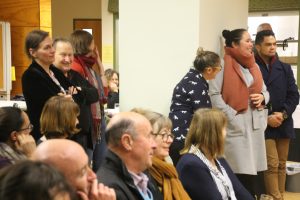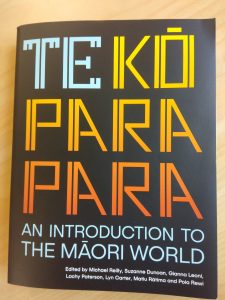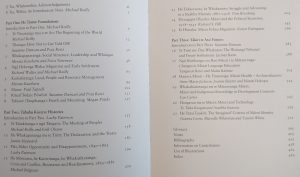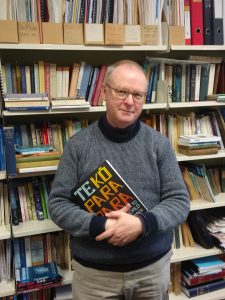Re-visioning Pacific research method/ologies in the new issue of Waka Kuaka (Journal of the Polynesian Society)
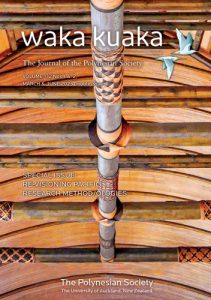
The beautiful lalava (lashings) created by Sopolemelama Filipe Tohi in the Fale Pasifika at the University of Auckland. (Picture by Julia Mageau Gray.) Click image to enlarge.
The Journal of the Polynesian Society has renewed its branding with the addition of its new name, Waka Kuaka. In the second issue, and first special issue under its new title, co-editors Dr Marcia Leenen-Young and Dr Lisa Uperesa of the University of Auckland gathered doctoral candidates and early career Pacific scholars from across Aotearoa, Te Waipounamu and Australia under the theme Re-Visioning Pacific Research Method/ologies. Three of our Te Tumu whānau were involved in the project. Dr Emma Powell and PhD candidate, Wanda Ieremia-Allan were both authors in the issue with their respective articles, “Tei te Akau Roa: An Ocean of Metaphor in Pacific Research Methodologies” and “Feiloa‘iga ma Talanoaga ma ‘āiga: Talanoa with Family in the Archives”. Professor Michael Reilly, a long-time member and supporter of the journal and society, also generously gave his feedback on Leenen-Young and Uperesa’s introduction.
In the words of the co-editors, the issue marks an “…historic shift in research practice and approaches for and by Pacific peoples and is intended to contribute new knowledge about how Pacific research methodologies and methods are being used (alone and in conjunction with other research approaches and methods). The contributions in [the] special issue help to illuminate the mutually constitutive relationship between theory and practice by sharing critical reflections and practical adaptations by early-career researchers who are raising considerations appropriate for the contemporary moment. In building on current knowledge, some deepen our understanding while others elaborate new approaches” (12).
The issue provided an opportunity for early career Pacific scholars to publish in an iconic journal of anthropology and related scholarly fields dedicated to Polynesia and the wider Pacific region. As a part of the issue’s production, the editors facilitated an innovative development and peer review process that was fully funded. The development of the special issue involved an online writing retreat, weekly 2.5 hour online writing sessions prior to draft submission, and a 1.5-day compulsory, in-person closed symposium for a double peer-review process. This was held at the Fale Pasifika in Auckland as was the launch of the issue which was held on 12 June 2023.
Seminar: Leina Isno – Sista, Stanap Strong!
Leina Isno (ni-Vanuatu) will be presenting the next Te Tumu seminar at 3pm (NZ Time), Wednesday 10 May in Te Iringa Kōrero (3rd floor, Te Tumu). Leina will talk about her contribution to Sista, Stanap Strong!: A Vanuatu Women’s Anthology for which she wrote about her experiences as a ni-Vanuatu woman, living and working in Aotearoa.
Please click on the poster for more information.
This seminar will also be online via Zoom, Click here to join.
Meeting password 932 6337 4957
Password: Malekula.
Seminar contact: Kare Tipa, kare.tipa@otago.ac.nz
All are welcome to attend.
Te Tumu featuring in a new book on Indigenous Women
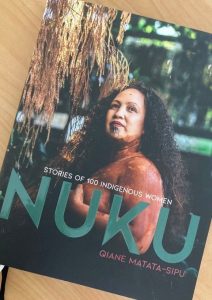 A new book, Nuku: Stories of 100 Indigenous Women, written by Qiane Matata-Sipu has just been publishing containing (as the title suggests) stories from 100 indigeneous wāhine, mainly wāhine Māori.
A new book, Nuku: Stories of 100 Indigenous Women, written by Qiane Matata-Sipu has just been publishing containing (as the title suggests) stories from 100 indigeneous wāhine, mainly wāhine Māori.
“These women and their stories dare to carve their own unique portrait, showing that the world can be positively shaped by our diverse and connected Indigenous voices. Stories about who we are, not who we’ve been told to be.” Qiane Matata-Sipu
Within this book Te Tumu has an alumna, Dr Ani Alana Kainamu, and current Lecturer, Dr Erica Newman. As with all narratives within this pukapuka, both Drs Kainamu and Newman talk about their own journeys within te ao Māori and what they are currently doing.
This book is well presented with fabulous stories from some amazing women.
If you are the type who prefers to listen rather than read, longer versions of each women’s kōrero are available as podcasts on https://nukuwomen.co.nz/nuku100/
Te Tumu input into international cancer research
Regular readers of this blog will know of Karyn Paringatai’s research work. Not only is she an award-winning teacher, an advanced te reo Māori practitioner, and kapa haka aficionado, but she is also undertaking Marsden-funded research on Māori and gastric cancer in collaboration with Professor Parry Guilford of the university’s Centre for Translation Cancer Research. What follows is an update of this research, and some media links for those wanting more information.
Hereditary diffuse gastric cancer (HDGC): updated clinical practice guidelines
Māori are three times more likely to develop stomach cancer than people of European descent. Māori are one of the few populations worldwide where diffuse-type gastric cancer is more common than intestinal-type stomach cancer. Diffuse gastric cancer is an aggresive type of cancer that grows rapidly in the cells of the stomach wall – it does not form a mass or a tumour. These cancer cells spread widely and quickly and it makes it difficult to diagnose. The reasons for this high occurrence of diffuse stomach cancer are unclear but a relatively high frequency of the inherited CDH1 variants in the Māori population is one important reason. When working properly the CDH1 gene controls the growth of cells. But because it has mutated it allows cells to grow uncontrollably – including cancer cells. This genetic mutation is particularly prevalent amongst Māori, but many are unaware of the risk.
When Dr Karyn Paringatai was tested for a CDH1 variant 11 years there were only 3-4 Māori whānau with mutations in this particular gene. That number has since increased to between 12-15 Māori whānau. This prompted researchers and health professionals working in this area and affected whānau and families from all around the world to gather in Wānaka in March 2019 to update the previous management guidelines for HDGC published in 2015. A number of important new and revised recommendations are made in these updated guidelines, which was recently published by Lancet Oncology. However, most pertinent to Māori was that the whānau of any Māori person who has been diagnosed with diffuse stomach cancer be encouraged to have a genetic test, regardless of any other family history. Previously, the guidelines were largely based around the number of cases of this cancer in a family. 11 years ago Karyn had to fight to be tested and prove that she was at risk of HDGC, which was tough to do with her scant knowledge of her whānau’s medical history. That is no longer the case.
Professor Parry Guilford (Te Aho Matatu, Centre for Translation Cancer Research, University of Otago), the lead author of the article, states, “It is very uncommon in international guidelines to single out sub populations, so this is quite a significant move that we hope will reduce their risk as well as helping to reduce inequities in health for Māori.” Karyn, a co-author of these guidelines, is actively encouraging Māori to be tested and to make contact with her for any advice on how to do so. It is important to do so – for the future of our whakapapa.
This research is linked to Karyn’s Marsden funded project E kore au e ngaro – The enduring legacy of whakapapa.
Click here for a link to the updated guidelines in Lancet Oncology
Click on the links in the titles below to access media reports.
| Three, Newshub Live at 6pm, 10/08/2020, Samantha Hayes and Mike McRoberts |
| There are likely to be several hundred Maori unaware they are at high risk of an inherited form of stomach cancer, a New Zealand research team has suggested. The team from the University of Otago is hopeful updated international clinical practice guidelines they helped develop will encourage these people to be tested. |
| Radio NZ – National, Checkpoint, 10/08/2020, Lisa Owen |
| Report by Meriana Johnsen. A move to make it easier to get tested for stomach cancer is expected to save the lives of whanau Maori, and in particular, the several hundred Maori who are unaware they are at risk. New guidelines developed by the University of Otago and Kimihauora Research Clinic allow Maori to be tested for the genetic mutation CDH1 even if there is only one other family member with stomach cancer. |
| Radio NZ – National, 15:00 News, 10/08/2020 | |||||||
| A new testing criterion for identifying stomach cancer developed by Otago University and the Kimihauora Research Clinic is anticipated to save the lives of whanau Maori. Otago University’s Senior Lecturer at the School of Maori, Pacific, and Indigenous Studies Karyn Paringatai says Maori would have fewer holes to jump through.
|
|||||||
| Stomach cancer test to save whanau Maori lives | |||||||
| Radio New Zealand, Other, 10/08/2020 | |||||||
| A move to make it easier to get tested for stomach cancer is expected to save the lives of whānau Māori, and in particular, the several hundred Māori who are unaware they are at risk. New guidelines developed by the University of Otago and Kimihauora Research Clinic allow Maori to be tested for the genetic mutation, CDH1, even if there is only one other family member with stomach cancer. |
| Testing expected to save Maori from stomach cancer |
| Radio New Zealand, Other, 10/08/2020 |
| A research team hopes Maori lives will be saved with a new testing criteria for stomach cancer. The University of Otago and Kimihauora Reseach Clinic have developed the new criteria to make it easier for Maori to be tested for the genetic mutation that leads to the cancer. |
| Changing international guidelines to save Maori lives |
| Radio New Zealand, Other, 10/08/2020 |
| Researchers have managed to get a change to international clinical guidelines to ensure Maori are tested for a gene which causes stomach cancer. Otago University Professor Parry Guilford explains to Jesse why this gene is more prevalent in Maori and can be identified before a person gets cancer. |
| New clinical guidelines for stomach cancer testing aim to improve outcomes for Maori |
| Newshub, Other, 10/08/2020, Dave Goosselink |
| An Otago University team has developed new clinical guidelines for testing stomach cancer in New Zealand – especially in Maori. Maori have a higher risk of developing the disease, due to a cancer-causing gene passed down through some whakapapa. |
| Research team hopes Maori lives will be saved with new testing criteria for stomach cancer |
| New Zealand Doctor Online, Other, 10/08/2020 |
| There are likely to be several hundred Maori unaware they are at high risk of an inherited form of stomach cancer and a New Zealand research team is hopeful updated international clinical practice guidelines they helped develop will encourage these people to be tested. The University of Otago and the Kimihauora Health and Research Clinic’s (Mt Maunganui) work in understanding the role of variants (mutations) in the CDH1 gene in familial stomach cancer and the subsequent development of a genetic test, has dramatically reduced the number of deaths from this form of inherited cancer. |
| A research team hopes Maori lives will be saved by new testing criteria for stomach cancer |
| NZCity, Other, 11/08/2020 |
| Otago University Professor Parry Guilford was part of the research team which in 1997, discovered a gene mutation that makes people more likely to get stomach cancer. He’s now helped develop a new set of testing guidelines for it. |
| Research team hopes Maori lives will be saved with new testing criteria for stomach cancer |
| University of Otago, Other, 10/08/2020, Liane Topham-Kindley |
| There are likely to be several hundred Maori unaware they are at high risk of an inherited form of stomach cancer and a New Zealand research team is hopeful updated international clinical practice guidelines they helped develop will encourage these people to be tested. The University of Otago and the Kimihauora Health and Research Clinic’s (Mt Maunganui) work in understanding the role of variants (mutations) in the I gene in familial stomach cancer and the subsequent development of a genetic test, has dramatically reduced the number of deaths from this form of inherited cancer. |
| Newstalk ZB (Auckland), 10:00 News, 11/08/2020 |
| Otago University Prof Parry Guilford has helped develop new testing guidelines for his 1997 research, with the hope that it will make it easier for Māori to get tests to find out if they have stomach cancer-causing genes. |
| Newstalk ZB (Auckland), 10:00 News, 11/08/2020 |
| Otago University Prof Parry Guilford has helped develop new testing guidelines for his 1997 research, with the hope that it will make it easier for Māori to get tests to find out if they have stomach cancer-causing genes. |
Publishing award
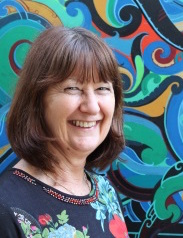 Congratulations to Lyn Carter, the coordinator of our Indigenous Development Programme, for her recent article co-written with Janet Stephenson (Centre for Sustainability) and Claire Freeman (Geography) from Otago, and others in the journal Society & Natural Resources.
Congratulations to Lyn Carter, the coordinator of our Indigenous Development Programme, for her recent article co-written with Janet Stephenson (Centre for Sustainability) and Claire Freeman (Geography) from Otago, and others in the journal Society & Natural Resources.
The article won the S & NR best publication award for 2019. Click on the link to read it: Hybrid Neoliberalism Implications for Sustainable Development
10 questions with . . . Lyn Carter.
The Association of Social Anthropologists of Aotearoa/New Zealand recently conducted a ’10 questions with’ session with Te Tumu’s Lyn Carter about her newly released book Indigenous Pacific Approaches to Climate Change: Aotearoa/New Zealand on their blogsite. Click here to read all about it.
New book: Indigenous Pacific Approaches to Climate Change
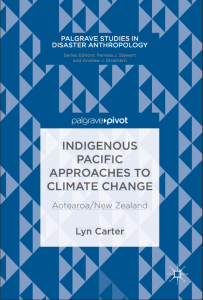 Climate Change is an issue for the Pacific. We are delighted to announce the lastest book by a Te Tumu scholar, Dr Lyn Carter, Indigenous Pacific Approaches to Climate Change, published as part of Palgrave’s Studies in Disaster Anthropology Series.
Climate Change is an issue for the Pacific. We are delighted to announce the lastest book by a Te Tumu scholar, Dr Lyn Carter, Indigenous Pacific Approaches to Climate Change, published as part of Palgrave’s Studies in Disaster Anthropology Series.
Dr Carter, a Ngāi Tahu scholar, is a member of Te Tumu’s Indigenous Development programme, and teaches the popular INDV301 course, Māori and Indigenous Development Ethics and Government.
From the publisher: “Situating Māori Ecological Knowledge (MEK) within traditional environmental knowledge (TEK) frameworks, this book recognizes that indigenous ecological knowledge contributes to our understanding of how we live in our world (our world views), and in turn, how we adapt to climate change.
“As an industrialized nation, Aotearoa/New Zealand (A/NZ) has responsibilities and obligations to other Pacific dwellers, including its indigenous populations. In this context, Lyn Carter discusses how A/NZ can benefit from the wider Pacific strategies already in place; how to meet its global obligations to reducing greenhouse gases; and how A/NZ can utilize MEK to achieve substantial inroads into long-term adaptation strategies and sustainable practices. Carter demonstrates that in all respects Māori tribal groups are well-placed to be key players: adaptation strategies, policies, and practices are integrated throughout Māori/Iwi traditional knowledge.”
Click here to access this new book.
Te Kōparapara Book Launch
Te Tumu enjoyed a great launch last night of its new book, Te Kōparapara: An Introduction to the Māori World. Published by Auckland University Press [click here to order online] , this book will be used by Māori Studies staff in their teaching, particularly for the MAOR102 Māori Society paper.
The event was MC’d by Professor Poia Rewi, the Dean of Te Tumu, then launched by local Ōtākou Rūnaka Representative, Tahu Pōtiki, who reminisced about his own time as a student at Otago, and how there was a gap in local Ngāi Tahu presence in Māori Studies at that time, something that this new book goes some way in filling. Lead editor Professor Michael Reilly spoke on the processes of wrangling such a large number of authors and editors, and of the exemplary work of Ginny Sullivan, AUP’s copy editor who sadly passed away. AUP Director, Sam Elworthy also spoke, singing the praises of the scholarly work being produced by Te Tumu.
New book: Indigenous Pacific Approaches to Climate Change
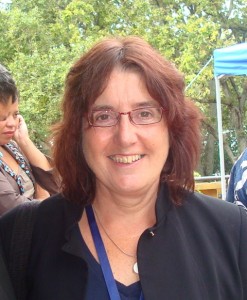 Jenny Bryant-Tokalau of our Pacific Islands Studies programme has just published a new book, Indigenous Pacific Approaches to Climate Change, with Palgrave Macmillan, as part of the Palgrave Studies in Disaster Anthropology. As the series editors note, this volume “is explicitly written as a companion to another study for our series, by Dr. Lyn Carter, on Maori TEK [Traditional ecological knowledge] (MEK) in Aotearoa New Zealand.” Lyn is a staff member of Te Tumu’s Indigenous Development programme.
Jenny Bryant-Tokalau of our Pacific Islands Studies programme has just published a new book, Indigenous Pacific Approaches to Climate Change, with Palgrave Macmillan, as part of the Palgrave Studies in Disaster Anthropology. As the series editors note, this volume “is explicitly written as a companion to another study for our series, by Dr. Lyn Carter, on Maori TEK [Traditional ecological knowledge] (MEK) in Aotearoa New Zealand.” Lyn is a staff member of Te Tumu’s Indigenous Development programme.
Jenny’s new book covers a wide range of contemporary issues, such as climate change; social conflicts that result from forced re-settlement processes eventuating from environmental alterations, e.g., desertification shoreline loss, sinking islands, rising seas. See the contents below.
For more information, or to download Indigenous Pacific Approaches to Climate Change click here.
In all good bookstores soon!
Ka tangi the kōparapara! Te Tumu staff are delighted with the advance copy of their new book, Te Kōparapara: An Introduction to the Māori World, which arrived a few days ago. This book, published by Auckland University Press, will be out in bookstores next month. Te Tumu will use it as a textbook for our MAOR102: Māori Society paper, replacing Ki Te Whaiao, which staff put out in 2004. But Te Kōparapara will also be of interest to anyone wanting to learn more about te ao Māori.
The kōparapara is the bellbird, the most impressive native songbird, and its tangi is used as a metaphor for the twenty-one chapters in the book. There are three sections. “Te Tumu: Foundations” looks at pre-contact history and Māori culture both from a traditional standpoint, but also in the present. The second section, “Tāhuhu Kōrero: Histories” examines the past from Māori first contacts with Pākehā newcomers to the post-war urban migrations. This leads into “Tākiri the Ata: Futures” which looks at contemporary Māori society and its future. See the contents pages for fuller details. Also click the AUP webpage to access some sample pages.
A number of Te Tumu staff, past and present, have contributed to the book: Michael Reilly, Suzanne Duncan, Poia Rewi, Merata Kawharu, Erica Newman, Paul Tapsell, Megan Pōtiki, Lachy Paterson, Karyn Paringātai, Tangiwai Rewi, Matiu Rātima, Lyn Carter, our postdoc, Gianna Leoni, and former postgrad students Marcelle Wharerau and Tawini White.
We would also like to send out a big mihi to the other authors who also contributed chapters, including from Otago: Richard Walter (Anthropology), Erik Olssen (History, emeritus), Janine Hayward (Politics), Tom Brooking (History), Jacinta Ruru (Law), Anne-Marie Jackson and Hauiti Hakopa (PE), Joanne Baxter (Health); and from further afield, Michael Belgrave (Massey), Richard S. Hill (Victoria), Te Taka Keegan (Waikato) and Acushla Sciascia (AUT). And of course, Sam Elworthy and the team at Auckland University Press.
In particular, we must acknowledge Professor Michael Reilly who led the project, ably assisted by Suzanne Duncan and Gianna Leoni, wrangling all the contributors (and co-editors), communicating with the publisher, and making sure all the little tasks were completed. He mihi nui ki a koe, Michael; mei kore ake koe hei hautū i te kaupapa nei.

